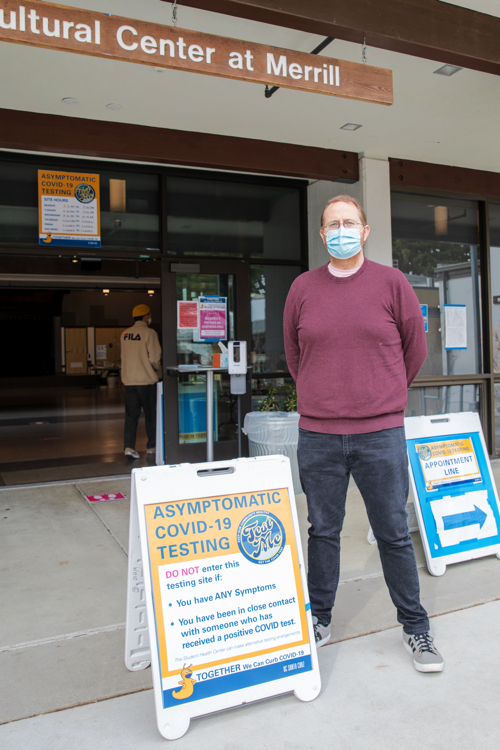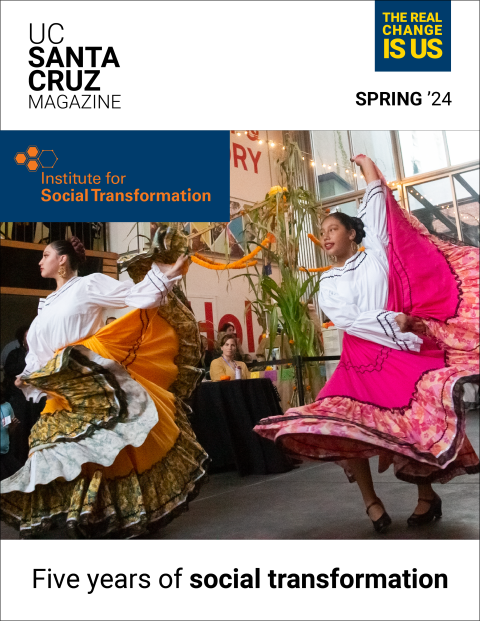Michael Luttrell never thought he would work in the health care field. Until last year, he headed operations for UC Santa Cruz’s Conference Services.
But when the world abruptly shut down a year ago because of the COVID–19 pandemic, all conferences were canceled. Like everyone else, he had to swiftly change gears. Within a few months, he found himself starting a brand new job: operations manager for the university’s COVID–19 testing services.
“It wasn’t on my radar,” he said about joining the medical field. But he rose to the challenge and said he has enjoyed meeting and working with a whole different group of people in Student Health Services.
He oversees a staff of 62 students, who have been trained to help facilitate testing of asymptomatic students. The students welcome, check-in and provide testing materials like swabs and vials to students, faculty and staff who then administer their own tests.
It hasn’t been easy. Not only did he have to figure out how to run a brand new operation, he had to do it in the midst of mammoth wildfires. He, his wife and their then 1-year-old daughter had to evacuate from their Boulder Creek home for 39 days.
“It’s been an interesting year,” he said.
The first testing site launched in September in the student health center parking lot with a test run of staff volunteers. Since then, the program has slowly expanded with sites in the Namaste Lounge at College Nine, the Merrill Cultural Center, and the Hitchcock Lounge at Porter College. The sites provide 3,500–4,000 tests per week and then turn them over to the campus diagnostic lab, which gives back results in one-to-three days.
“We hit the ground running and have moved forward by trial and error,” Luttrell said.
Though most classes are still online, the campus is home to 1,500 students, including those living in family housing and residence halls. They are required to be tested twice a week. Normally there would be about 9,300 students living on campus.
Luttrell said he wasn’t nervous about working with COVID–19 testing because he was confident with the procedures put in place by the University’s Risk and Safety Services and Student Health Services. He said he was glad to leave remote working and get back to campus. “It was nice seeing our campus community, seeing students and seeing staff on campus that I hadn’t seen for a few months.”
To date, the asymptomatic student testing operation has conducted roughly 40,000 tests with 103 coming back positive. The .25 percent positive rate is “extremely low,” Luttrell said.
Luttrell anticipates that he will continue to working on coordinating testing through the fall, when the university hopes to bring back more students in a situation that will likely include a mix of online and in-person classes. He said he is grateful to be able to help with the effort.
“It’s been different but it’s been inspiring ,” he said. “This whole thing, from the pandemic through the fires, seeing how resilient our campus community is is a blessing.”



